The Venezuelan government said Monday that it had pardoned more than 100 people, including dozens of political opponents who are in prison, have taken refuge in foreign embassies in Caracas or fled the country.
The move comes ahead of congressional elections set for December 6 that the coalition led by US-backed opposition leader Juan Guaidó says it is boycotting because conditions for the vote are not fair.
The names listed in the pardon don’t include prominent opposition leaders such as Leopoldo López, who remains inside a foreign ambassador’s residence in Caracas, or Julio Borges, a powerful opposition lawmaker who is in neighbouring Colombia.
Relatives of some people on the list who were detained in a Caracas-area prisons rushed to its gates following the government's announcement.
The Caracas-based prisoner rights group Foro Penal said 50 of those to be pardoned were what the opposition considers politically motivated. Roughly two dozen are lawmakers in the National Assembly.
Minister of Communications Jorge Rodríguez listed 110 people being pardoned, although the terms of the announced amnesty were not clear.
“The government's intention is to deepen the process of reconciliation for national unity so that political issues are settled by peaceful means and by electoral means,” Rodríguez said.
'Goodwill'
Maduro's government framed the presidential decree as a goodwill gesture to boost participation in the upcoming election. It wasn't immediately clear whether jailed political actors would walk free and those seeking refuge in foreign embassies would step out the gates without fearing reprisals.
Geoff Ramsey, a Washington DC-based Venezuela researcher at the Washington Office on Latin America, said this is clearly the product of backdoor negotiations between the Maduro government and moderate sectors in the opposition, which don't include Guaidó.
The fact they are openly negotiating in defiance of the US government and Guaidó shows that a growing part of Venezuela’s opposition has become frustrated with Venezuela's political stalemate, he said.
“They’re more interested in pursuing incremental agreements rather than insisting that Maduro has to go before anything meaningful can be negotiated,” Ramsey said. “The big question is whether this will go beyond political prisoners to include things like free and fair elections.”
Venezuela is gripped by an economic and political crisis that has sent more than five million fleeing in recent years, escaping scarcities of basic goods and soaring inflation that has left many struggling in poverty.
Guaidó for over a year has led a campaign backed by the United States and dozens of other countries to oust Maduro, who remains in power with backing from the military and international allies like Russia, China, Cuba, Turkey and Iran.
'No criminal'
The announcement of the pardons came days after authorities released on house arrest lawmaker Juan Requesens, who was jailed for two years and accused of taking part in a failed attempt to attack President Nicolás Maduro with two drones that exploded during an outdoor military ceremony.
Among the lawmakers listed in Maduro's pardon decree is Freddy Guevara, who has lived in the Chilean ambassador's residence in Caracas for nearly three years.
Two jailed lawmakers in the list are Renzo Prieto and Gilber Caro, while José Guerra, Tomás Guanipa, Mariela Magallanes and Américo de Grazia live outside of Venezuela, leaving under the threat of being arrested on accusations they want to overthrow Maduro.
“Maduro is not our president and I am no criminal,” De Grazia, who lives in Italy, said on Twitter, addressing Maduro. “If you wish to contribute to Venezuela's peace, pardon the country from this autocracy.”
However, Leocenis García, a congressional candidate campaigning for a seat in the National Assembly in the upcoming elections, said he believes that Maduro’s government doesn't have a chance to come out on top -- especially if there's a groundswell of participation from opposition parties.
García leads ProCitizens, a small political party that is opposed to Maduro but not part of the opposition coalition led by Guaidó and his mentor Leopoldo López.
“I agree that we need as much participation as possible from our political parties,” García said. “The path of violence that the Popular Will Party of Leopoldo López sold to Washington is over, and now we have an electoral path, which is gaining strength.”
related news
by Scott Smith & Jorge Rueda, Associated Press












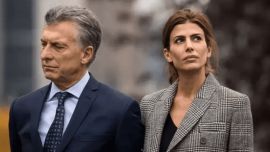

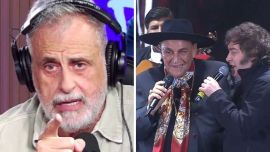







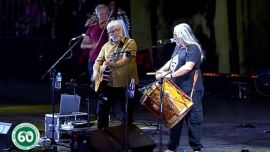
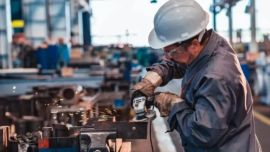

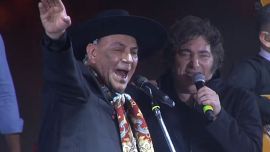
Comments